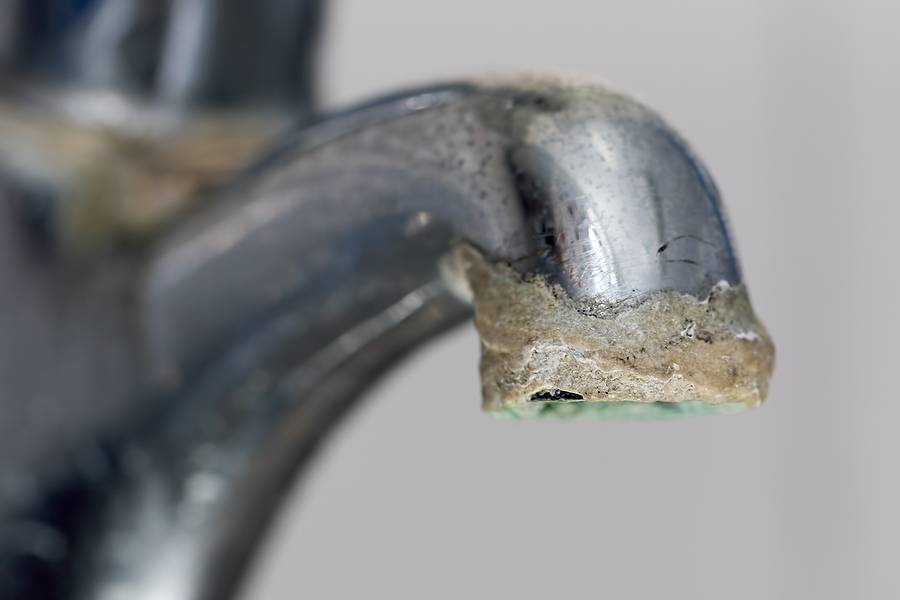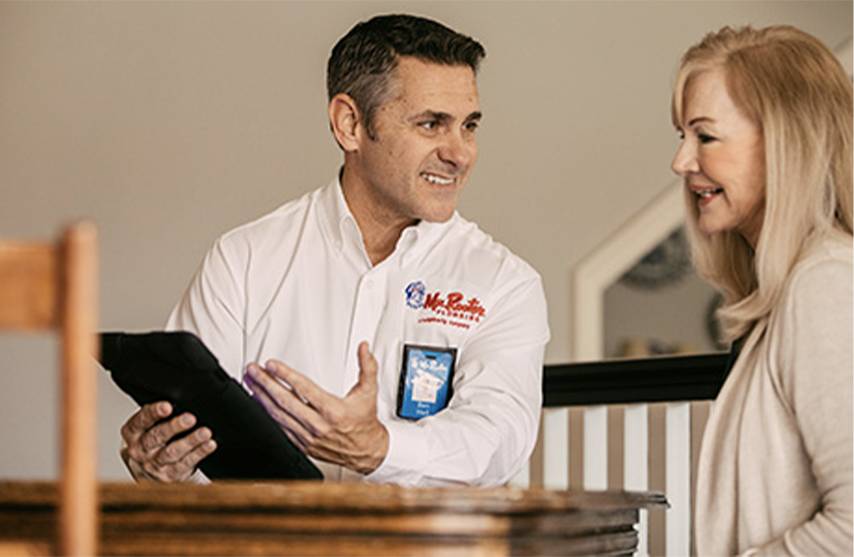
Hard water stains are a common problem in homes, as water salinity affects most parts of the United States. If you notice stains forming after cleaning a surface, chances are the water contains chlorides, bicarbonates, and calcium and magnesium sulfates. These salts make the water hard and bad for your home. Hence, consulting a professional plumbing service can help you quickly mitigate further damage and rectify the problem.
Since hard water is highly soluble in the ground and surface water, deposits on multiple areas in your premises affect surface durability and aesthetics. At Mr. Rooter Plumbing of Youngstown, we understand the challenge of removing hard water stains and suggest the following methods to ease the process.
White vinegar contains acetic acid, which is highly effective in breaking mineral deposits and making it easier to remove hard water stains. Vinegar is an organic and safe substance used for cleaning almost any surface in your home. Once you notice the affected areas, spray undiluted vinegar and let it set for at least four hours. Next, scrub with a brush and soap to agitate loose salts. Rinse with warm water and let it dry. If you are cleaning the toilet bowl, turn off the water supply and flush the toilet to remove all the water before adding vinegar.
Oxalic acid is another organic compound with efficacy against tough stains, such as mineral deposits and grime. Most professional cleaning services use oxalic acid to eliminate tough stains in homes, restoring the surface to optimal condition. Mix one part of the acid with six parts of warm water and apply it to the affected areas. After it dissolves the deposits, wash thoroughly with water to eliminate traces of the acid. If you don’t have protective clothing while handling oxalic acid, consider hiring a trusted plumber for help.
Toothpaste contains fluoride, which reacts with calcium and magnesium salts, breaking them and making it easy to remove hard water stains. Common surfaces to use fluoride toothpaste include stone surfaces, clean glass, ceramics, and chrome fixtures. Apply the toothpaste to the dirty surface or object and leave it for 5 minutes. Use a brush or sponge to brush it gently and rinse with water to remove any residue. You can consult a cleaning or plumbing service to determine if it is the best option for your intended surfaces.

Hydrogen peroxide is commonly used as an antiseptic for cleaning wounds. However, you can use it to remove hard water stains from steel, tiles, ceramics, and other surfaces when you mix it with a mildly abrasive cream of tartar. Use these ingredients to make a runny paste and apply it generously on the affected surfaces. Wait ten minutes before scrubbing with a soft brush or sponge, and wipe it off using a damp microfiber cloth. Don’t leave the paste too long on your surfaces, as hydrogen peroxide can bleach the surface after breaking down the stain.
Baking soda is a mildly abrasive substance that dissolves calcium deposits. This makes it potent enough to remove hard water stains, but you should mix one part of vinegar with two parts of baking soda. Apply the paste on the stains and wait about fifteen minutes before scrubbing and deodorizing the fixtures or surfaces. Rinse with warm water and wipe off moisture with a microfiber cloth.
These are common DIY alternatives you can attempt to clean hard water stains at home. If you prefer a hands-off approach, contact us at Mr. Rooter Plumbing of Youngstown to schedule an appointment with a skilled plumber in Howland Corners.